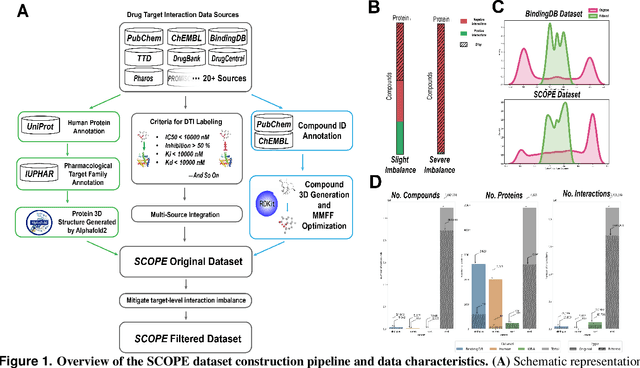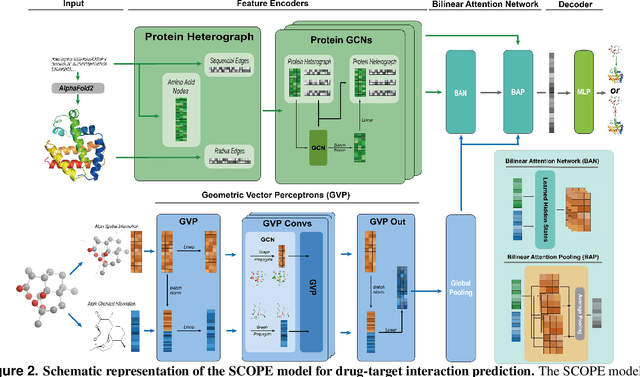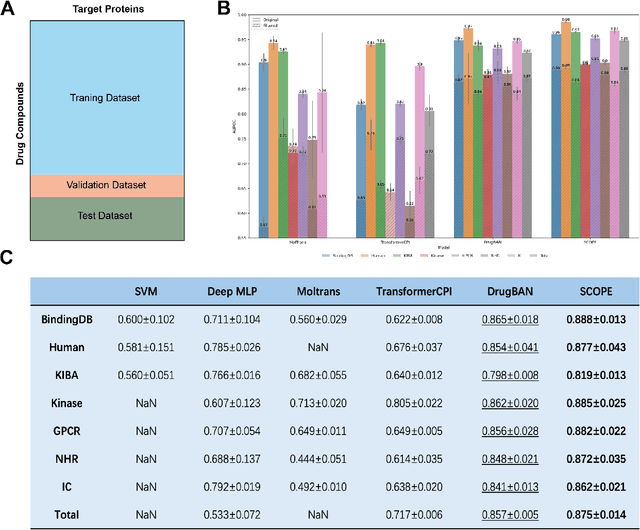Yixian Huang
SCOPE-DTI: Semi-Inductive Dataset Construction and Framework Optimization for Practical Usability Enhancement in Deep Learning-Based Drug Target Interaction Prediction
Mar 12, 2025



Abstract:Deep learning-based drug-target interaction (DTI) prediction methods have demonstrated strong performance; however, real-world applicability remains constrained by limited data diversity and modeling complexity. To address these challenges, we propose SCOPE-DTI, a unified framework combining a large-scale, balanced semi-inductive human DTI dataset with advanced deep learning modeling. Constructed from 13 public repositories, the SCOPE dataset expands data volume by up to 100-fold compared to common benchmarks such as the Human dataset. The SCOPE model integrates three-dimensional protein and compound representations, graph neural networks, and bilinear attention mechanisms to effectively capture cross domain interaction patterns, significantly outperforming state-of-the-art methods across various DTI prediction tasks. Additionally, SCOPE-DTI provides a user-friendly interface and database. We further validate its effectiveness by experimentally identifying anticancer targets of Ginsenoside Rh1. By offering comprehensive data, advanced modeling, and accessible tools, SCOPE-DTI accelerates drug discovery research.
EditBoard: Towards A Comprehensive Evaluation Benchmark for Text-based Video Editing Models
Sep 15, 2024Abstract:The rapid development of diffusion models has significantly advanced AI-generated content (AIGC), particularly in Text-to-Image (T2I) and Text-to-Video (T2V) generation. Text-based video editing, leveraging these generative capabilities, has emerged as a promising field, enabling precise modifications to videos based on text prompts. Despite the proliferation of innovative video editing models, there is a conspicuous lack of comprehensive evaluation benchmarks that holistically assess these models' performance across various dimensions. Existing evaluations are limited and inconsistent, typically summarizing overall performance with a single score, which obscures models' effectiveness on individual editing tasks. To address this gap, we propose EditBoard, the first comprehensive evaluation benchmark for text-based video editing models. EditBoard encompasses nine automatic metrics across four dimensions, evaluating models on four task categories and introducing three new metrics to assess fidelity. This task-oriented benchmark facilitates objective evaluation by detailing model performance and providing insights into each model's strengths and weaknesses. By open-sourcing EditBoard, we aim to standardize evaluation and advance the development of robust video editing models.
 Add to Chrome
Add to Chrome Add to Firefox
Add to Firefox Add to Edge
Add to Edge